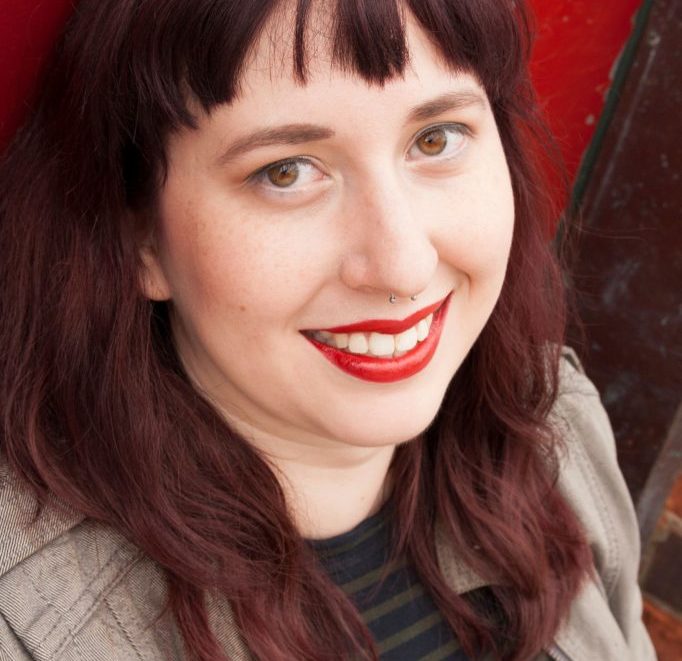
Photo by Ayelet Tsabari
Interview by Cara Nelissen
The Growing Room Festival is taking place from March 8-17, 2019. In this Q&A series we chat with some of the writers being featured at the festival about their work and the importance of community. Below is an interview with Alicia Elliott, where she talks about about her new book A Mind Spread Out On the Ground, vulnerability, and how important it is for marginalized writers to connect with each other. Have a look at all the events and get your tickets here!
Your book A Mind Spread Out On the Ground is coming out in March! How do you feel about the prospect of your book being out in the world for readers to engage with? Do you find that your relationship to your writing changes after it has gone off into the world?
While some of the essays in my book have been published before, the fact that they’re now in a book means they’re going to be much more visible, which is scary. For most of my life I’ve been conditioned to be secretive about myself, to be ashamed of being open about pain and trauma, even when I’ve needed to talk about it. So even though releasing A Mind Spread Out on the Ground is realizing one of my dreams, it also goes against this code of silence that I’ve been subconsciously following—and trying to undo—for decades. I have to keep reminding myself that vulnerability is strength, that seeing people I admire be vulnerable has always inspired me more than their feigning stoicism. That helps.
It’s hard to say what my relationship with my book is going to be once it’s published. With essays, editorials and short fiction, though, once that writing is out in the world, my relationship with it doesn’t matter nearly as much as its relationship with readers.
How important is it for writers and readers to have a physical place to gather and connect? In what ways has being in community with other writers been important to you? In what ways has it been challenging?
Writers are pretty much all weirdos, so it’s affirming to be around other weirdos and talk about this weird writing thing we’re all so obsessed with. I find this is particularly important for marginalized writers, as being around those who don’t understand the difficulties you face in this industry can be really demoralizing. Meeting other Indigenous writers, Black writers, writers of colour, disabled writers and trans writers has been life-changing for me. They’ve supported me when there was no reason to support me, other than the fact that I was a fellow writer. Their work has inspired me. Their intelligence and attention to craft has astounded me. Those are the parts of writing communities that I’ve always found the most nourishing.
Of course, you’re not going to get alone with everyone. I’ve had some really bad experiences with certain writers, certain literary festivals, certain editors and publishers. But just like in the world outside the literary community, you have to learn how to navigate those situations while preserving as much of yourself as you can. That’s when having some good writer friends helps – because you can rely on them to have your back and listen when you need them.
Who is your “ideal reader”? Who do you speak to in your work? What is your favourite thing about meeting your readers in person? What has it been like to meet people who don’t know you personally, but who have read your work?
I have two different types of readers in mind, I suppose: an imagined reader, and an ideal reader. When I’m writing, I’m writing for this imagined reader—an Indigenous woman, non-binary person or two-spirit person. I want to make sure that this reader feels at home in my work, that it holds them.
Of course, that’s not the only reader that I have in mind. I know that there are non-Indigenous readers who will come to my work, men who will come to my work, etc. In those cases, my ideal reader is someone who is curious and willing to reflect. I want my writing to encourage them to think about their lives, specifically the ways that history has shaped their families and themselves. I hope they’re not looking for a passive read, but something that challenges them to think differently.
It’s always surreal when I meet people who have read my work, and incredibly humbling. I remember how shy I was when I wanted to approach writers I admired, so it’s bizarre to be on the other side of that. But I really do love talking to people about their experiences of my work, because I get a chance to be the person I’d hoped my literary idols would be.
What’s the ideal writing snack?
Tea. Preferably black, but a green and black mixture is also acceptable. I don’t usually eat while I’m writing because I write on my laptop and I’m incredibly clumsy, so I’d probably get my keys all sticky and spill spaghetti sauce inside my USB port or something.
What are you most looking forward to at Growing Room? Any events you’re definitely checking out?
I won’t be there in time, but everyone should check out Indigenous Brilliance and live-tweet it so I can get the full FOMO experience.
Alicia Elliott is an award-winning Tuscarora writer. Her book of essays, A Mind Spread Out on the Ground, will be available from Doubleday in March 2019.